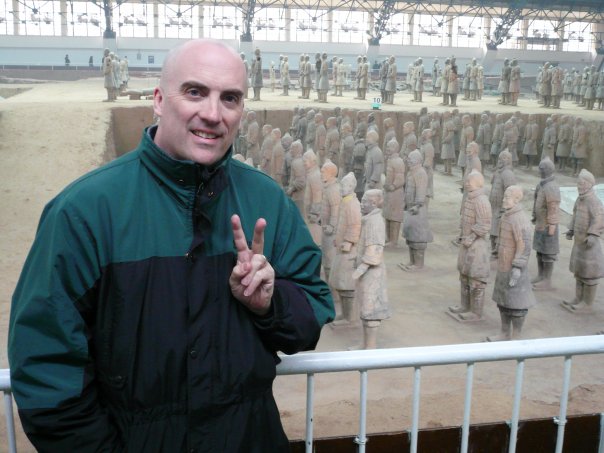I am absolutely fascinated by China. I can’t call myself a scholar or expert, but I’ve long been interested in the country, its people, and its way of doing things. While I have been especially critical of some of it – those things which deal with the liberty of its people in particular – I can’t entirely fault them in many respects.
Let’s face it – China is different. They had established themselves in the arts and sciences long before most of the rest of the world. They had a form of society and its rule that, albeit not democratic, was really no worse off than that of any of the world’s other monarchies (although influenced by a different underlying philosophy). It’s just that theirs eventually collapsed under the weight of corruption and deceit – both internally and externally (the corruption and ruthless racism of the colonial powers that hastened China’s downfall during the 19th century is breathtaking).
China is going through a phase now. Communism’s takeover in 1949 brought with it severe growing pains – and a lot of death. A lot of torture. A lot of mismanagement and incompetence. Mao’s cult of personality was one of the most powerful (and destructive) in all of human history, but the Chinese rose out of that to become a nation to be reckoned with as a world power. The lifting of huge swaths of its population out of poverty and illiteracy is an incredible accomplishment, and they’ve done a fair job of fighting the corruption you see in so many other third-world nations fighting their way out of desolation. Yes, there are still cases, but again, the results don’t lie. The average Chinese citizen today is far better off than those of past eras.
But there comes a tipping point in that growth. A point where leaders and all of their idealism fade away to leaders and all of their self-interests. A point where they perfect the art of doing just enough to control the majority, while discarding the rights of any minority. To them, it’s really a matter of whose rights? The Chinese see it differently than we do for sure. We’ll step in the way of the progress of the many in respect for the rights of the few (generally), while to the Chinese, the rights of the few are subject to the progress of society and government as a whole.
Still, for the Chinese to call their system a “democracy” is a stretch that makes it fairly clear they’re simply trying to force a certain narrative based on the actual definition of the word. Most of the world understands “democracy” to mean a system of government that covers at least some basic elements (as defined by the political scientist Larry Diamond and quoted in this article): “free and fair elections that can choose and replace the government, active citizen participation in politics and civic life, protection of human rights and rule of law that applies equally to all citizens.”
It’s quite obvious to the outside world that China really doesn’t fare well on those points. “Elections” are free in that the citizens are free to vote for the Communist Party all they want. The same goes for being an “active” citizen – as long as you’re “active” in supporting whatever the government says. It’s pretty clear that their record on human rights is questionable at best (I won’t go into the examples here). “Abysmal” is probably a more accurate word.
I would say that the last element – a rule of law that applies equally to all citizens – is probably their strongest. The new rich in China have learned that. Sadly though, the government has probably cracked down on them more out of a need for self-preservation than out of an actual desire to enforce the law fairly. They just can’t have anyone getting powerful enough to challenge their position (a major reason why religion does not fare well in China – you can have it, but you can’t have a deity that competes with the CCP).
In the end, I believe history will be kind to China. There will always be the typical ebb and flow of how things run there, and as reluctant as the Party is to relinquish any form of power, it’s inevitable that advances in technology and the Chinese people’s understanding of liberty that come with an opening to the world will eventually wear it down to a reasonable equilibrium of governance. It won’t be the same as that of the US for sure (nor should it be, for several reasons), but who knows? Perhaps the system of “Democracy with Chinese Characteristics” will settle in as the next great system of governance in the world for the coming century or so.

